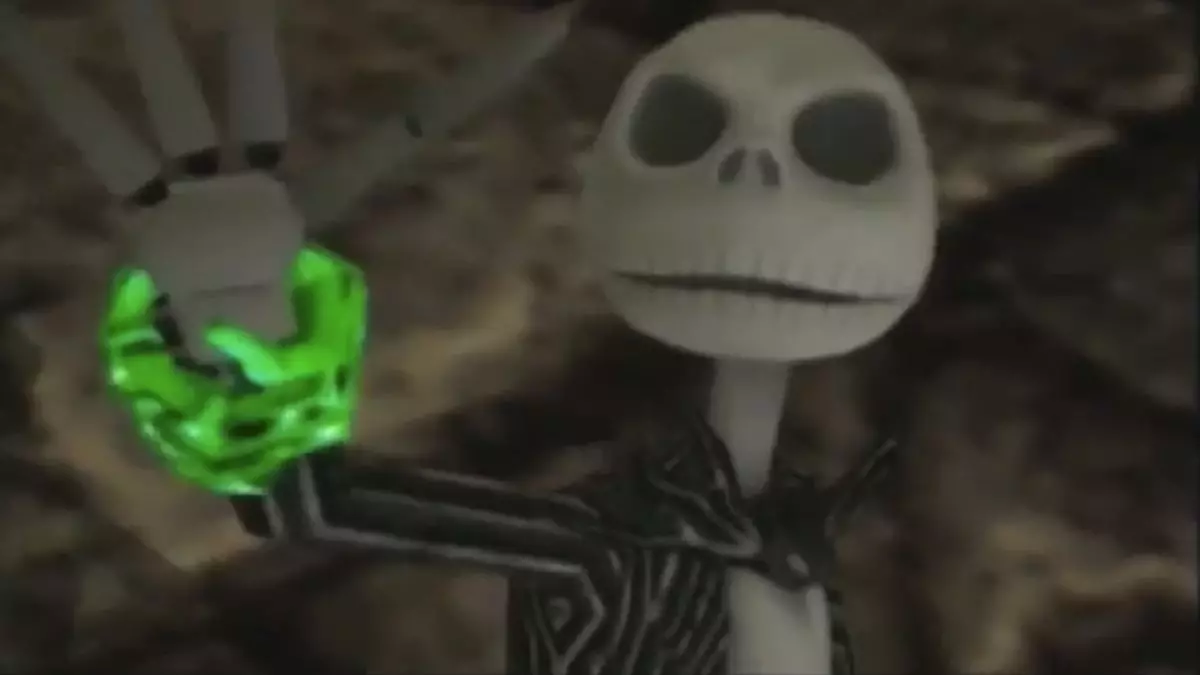When it comes to exploring the intersection of childhood nostalgia and holiday traditions, few experiences can rival the unique charm of “The Nightmare Before Christmas” franchise. As someone who grew up with a sibling who embraced goth culture, my household was unusually well-acquainted with Tim Burton’s darkly whimsical world. This affinity for the macabre meant that debates over the classification of “The Nightmare Before Christmas” as either a Halloween or Christmas film became an annual ritual. For me, the conclusion is inescapable: it’s a Christmas movie. Every festive season, we gather to experience its blend of holiday spirit and eerie cinematography, and amidst this tradition lies a gem of a video game: “The Nightmare Before Christmas: Oogie’s Revenge,” released for PlayStation 2 in 2004.
Set a year post the film’s events, “Oogie’s Revenge” thrusts players back into the peculiar world of Halloween Town, following Jack Skellington’s relentless pursuit of novelty. This time, however, our bony protagonist is faced with a dark twist: the resurrection of Oogie Boogie by the mischievous trio, Shock, Lock, and Barrel. The setup not only reinforces the holiday-themed narrative but also cleverly positions Christmas as the stage for Oogie’s chaos, providing an argument for its identity as a Christmas game.
Jack’s journey is filled with vibrant landscapes and increasingly absurd missions, each tied together by the overarching need to save Halloween Town from Oogie Boogie’s clutches. The gameplay structure involves completing various tasks for the townsfolk across multiple chapters, which offers a delightful mixture of combat and exploration. Unsurprisingly, the combat mechanics will draw comparisons to hack-and-slash favorites like “Devil May Cry,” compelling players to chain together combos and engage in rhythmically satisfying maneuvers against an array of ghoulish adversaries.
A centerpiece of the game and Jack’s primary weapon is the Soul Robber, an imaginatively designed whip-like tool that seems to have stepped straight from a child’s gothic fantasy. While it certainly captures the whimsical flair of the film, hearing Jack shout “Soul Robber!” incessantly can quickly grow tiresome. This repetitive dialogue is reminiscent of other games known for their catchphrases, often leading to a fine line between charming and annoying. However, it is this very absurdity that can evoke a sense of humor and paradoxical engagement—a hallmark of Burton’s creative style.
Upgrade mechanics allow for character customization, adding layers to the gameplay experience. With outfits like “Pumpkin King” and “Santa Jack,” players discover new abilities that pave the way for personalized combat styles and aesthetic choices. This not only serves to boost one’s effectiveness in battle but also creates a rewarding sense of progression that is often missing in linear games.
Perhaps the most unusual aspect of “Oogie’s Revenge” lies in the rhythm-based boss battles, which feel reminiscent of karaoke mechanics found in games like “Yakuza.” As Jack builds musical notes during combat, players enter a dance-off phase against bosses, necessitating a simultaneous coordination of timing and button prompts. While innovative, this mechanic may frustrate those less inclined toward rhythm games, leading to a mixed reception when players initially encounter it. The novelty can often fade amidst challenging mechanics, posing a question of accessibility versus creativity.
Even with its somewhat uneven gameplay pacing, the visual and auditory designs draw players into an affectionate embrace of Burton’s universe. While the game struggled with critiques of polish at the time of its release, it remains a nostalgic treasure for many who grew up cherishing the bookish aesthetics of Halloween Town.
“Oogie’s Revenge” occupies a unique niche in the celebratory aspects of both Christmas and Halloween. Despite its flaws, it remains an essential part of an eclectic gaming library that combines whimsy with the melancholic charm fans adore. For anyone who shares a fondness for Tim Burton’s macabre motifs, diving back into this title offers not just a game but an experience steeped in nostalgia and heartfelt connection to a beloved franchise.
While it may induce a few eye-rolls with its repetitiveness and the occasional frustration, “Oogie’s Revenge” encapsulates a rare blend of dark fantasy and festive spirit. As you ponder whether “The Nightmare Before Christmas” is indeed a Christmas movie or not, indulge in this playful adventure that lets players dance their way through a haunting, yet joyous landscape. And who knows? You may find yourself rocking along to “Soul Robber!” long after the credits roll.

